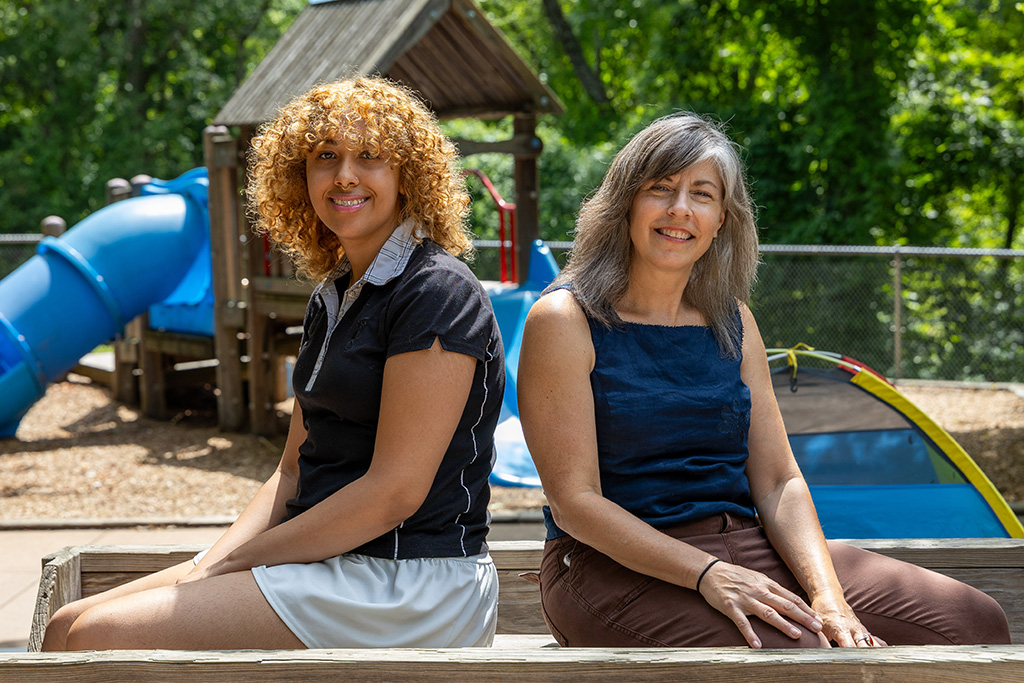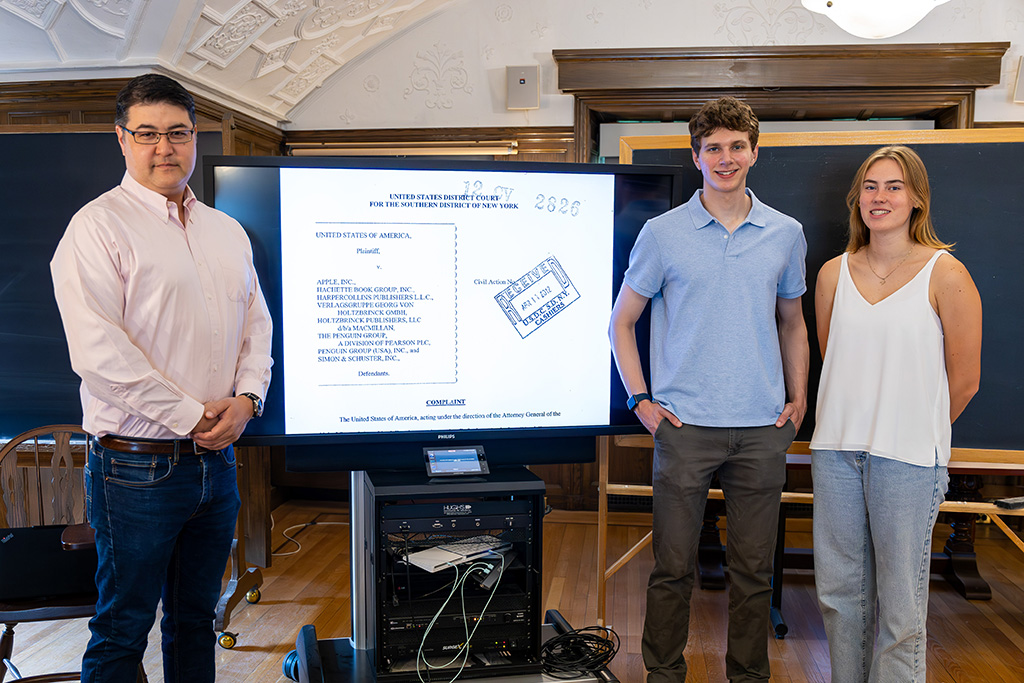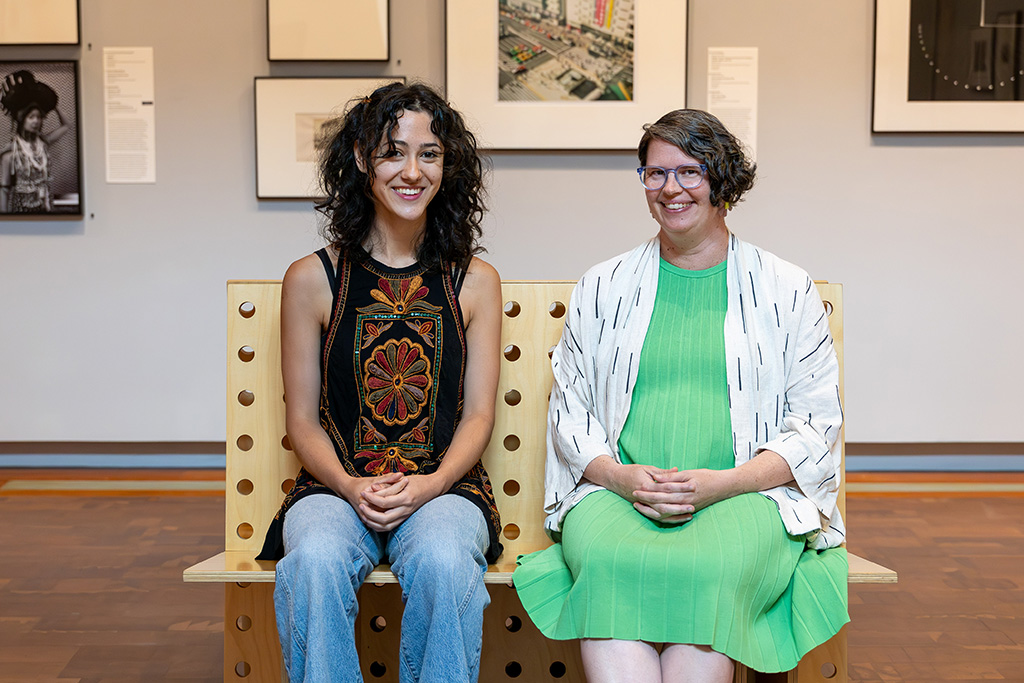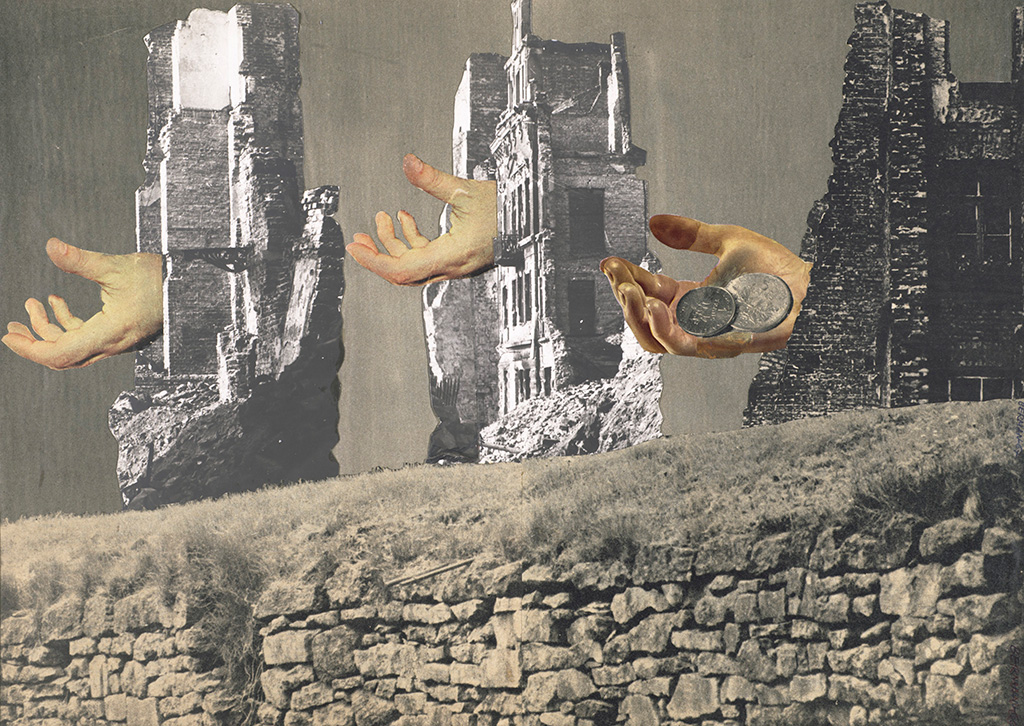Vassar’s Ford Scholars Embrace a Summer of Critical Thinking
Every summer since 1988, Vassar students have been collaborating with faculty members in the humanities and social sciences on research projects under the auspices of the Ford Scholars Program. A typical project supports one faculty member and one student to engage in rigorous scholarship, teaching preparation, or course development. Students earn a stipend to support their participation in the program. Funding for the Ford Scholars program is provided by numerous sources, most notably by the Shirley C. Barnhart ’32 Social Sciences Endowment. The following are reports on three of the research projects undertaken this summer.
Early Education: What Role Does Gender Play?

Photo by Buck Lewis
Throughout the academic year, Professor of Education Erin McCloskey teaches classes that address issues and challenges educators face in their classrooms. For more than two months this spring and summer, McCloskey and Ford Scholar Manal El Achraoui ’25 observed the interaction of teachers and young students in three pre-kindergarten classes in a City of Poughkeepsie elementary school. The goals of their research included:
- How do pre-K students develop gender roles through play?
- How does a female-only teaching staff in pre-K classrooms influence their place in the classroom and in educational contexts more broadly?
McCloskey said the findings of their research will be chronicled in a paper that will be submitted to a scholarly journal. She said she and El Achraoui also plan to present their findings at several conferences devoted to early childhood education. “I usually conduct my research by myself, but having a collaborator this summer was really useful,” McCloskey said. “Manal noticed some things that I didn’t during our observations, especially the role gender plays in daily activities.”
El Achraoui, a psychological science major from New York City, said she applied for McCloskey’s Ford Scholars project “because as a psych major, I’m interested in how different environments affect children’s development. I hadn’t been able to visualize and fully comprehend this aspect of child development until this summer. ”
El Achraoui said she noticed during her classroom observations how children had expressed traditional gender roles. “During playtimes, only the girls played with dolls and cared for their ‘babies,’” she said. “And during their graduation ceremony, six of the girls talked about wanting to be moms, while only one boy said anything about being a dad.”
El Achraoui also noted that at one of the graduation ceremonies, several girls said they wanted to be teachers when they grew up, while none of the boys had mentioned teaching as a goal. Both McCloskey and El Achraoui said this had prompted them to wonder if young boys were affected by the lack of male teachers at the pre-kindergarten level. “These observations raised the question: Is this lack of male teachers problematic?” McCloskey said.
El Achraoui said her experience as a Ford Scholar had broadened her college experience. And after the summer program officially ended, she and McCloskey continued to peruse articles on the subject of their research as they prepared to write their paper. “I really enjoyed the freedom and flexibility Erin gave me to pursue aspects of the study that I was interested in,” El Achraoui said. “It was quite different from the dynamic of a teacher and a student in a Vassar classroom.”
Economists Play Key Role in Financial Litigation

Photo by Buck Lewis
Every year in the United States, thousands of lawsuits are filed that involve claims that an individual or corporation has suffered economic harm from actions of another. For eight weeks this summer, Abbe Colgan ’26 and Oliver Berger ’26 analyzed legal documents and other material to help Visiting Assistant Professor of Economics Andrew Lemon ’00 create a new course that will ask students to examine the role economic experts play in settling such legal disputes.
Colgan and Berger combed through dozens of cases—an antitrust suit filed by the U.S. government against Apple, Inc., the recent Supreme Court decision that struck down the use of affirmative action in college admissions, and about 50 others—and analyzed the arguments presented by economists who testified in court.
“One of our primary tasks was to first find the right compelling cases with substantial economic analysis that could be used for the course and then obtaining the court documents that contained the testimony of these experts,” Berger, an economics major from Santa Monica, CA, explained.
Colgan, an economics major from Minneapolis, MN, said she and Berger often faced roadblocks in obtaining such documents. “Many of the papers are sealed because they contain proprietary information about corporations,” she said. But acting on a tip from a local law librarian, Colgan said she was able to gain access to records in the Delaware Court of Chancery, where numerous cases are aired because many corporations register in the state for tax purposes.
While Colgan and Berger analyzed the same material about each dispute, they didn’t always agree about the outcomes. In one case, Valassis, a firm that sells in-store advertising to supermarkets, claimed that a competitor, NewsCorp, was using unfair business practices in competing for contracts. Berger said he agreed with the economist who had testified on behalf of Valassis, while Colgan sided with NewsCorp.
Commenting on her experience in the Ford Scholars program, Colgan said, “It was a good example of the real-world applications of studying economics.” She noted that analyzing such testimony had spurred her to consider pursuing a career in economics.
Berger said studying these cases this summer had also piqued his interest in such work. “You really learn to appreciate the importance of attention to every detail,” he said. “Experts for both sides make conflicting arguments about the smallest points that turn out to be the key to the outcome.”
Lemon, who has testified himself in such financial disputes, said he was impressed with the work his Ford Scholars had done to help him create the new course, which will be offered next spring. He said he will ask his students to analyze the testimony of economic experts in about a dozen cases, and Colgan will serve as a guest instructor for one of the classes. (Berger will be studying abroad at Oxford University and is unavailable to participate.)
Students will write a final paper in which they pick a legal dispute, summarize the testimony of the experts for both sides, and then decide which one had the better argument. “As future liberal arts graduates, these students are well-prepared to apply their critical thinking skills as they gain greater command of economic principles,” Lemon said.
Ford Scholar Analyzes Politics of Graphic Design

Photo by Buck Lewis
Jessica Brier, Curator of Photography at the Frances Lehman Loeb Art Center, wrote her doctorate dissertation about visual artists and graphic designers who used their craft to comment on the political and social movements in Germany following the end of World War I. This summer, Brier and Ford Scholar/Pindyck Summer Fellow Anna Kozloski ’25 collaborated on a project that will culminate in an exhibition at the museum highlighting how graphic designers and architects have used photography as a tool for making new designs, especially in the wake of war and other disasters. The project includes design from the interwar period in Europe as well as in the United States and elsewhere after World War II.
“I have always been interested in how designers use photography to make social and political statements, and to imagine a different world,” Brier said. “I love that Anna gravitated to the study of the work of architects and others whose ideas were an important part of American counterculture in the twentieth century.”

Mieczyslaw Berman (Polish, 1903-1975), Untitled, Nd, Collage, Frances Lehman Loeb Art Center, Vassar College, Gift of Janet Lehr, 1997.28.3
Kozloski, a history and Italian double major from New Fairfield, CT, said she arrived at her decision to research the work of post-World War II architects after considering several other topics. “In the beginning, my research was all over the place—it touched on anything from climate activism in Antarctica to the AIDS epidemic and queer activism in the U.S.,” she said. “Later I landed on postwar, avant-garde architectural design in the 1960s and ’70s.”
Brier and Kozloski spent the summer locating appropriate photographs and collages in the Loeb’s collection as well as books and magazine articles and other objects they found in Vassar’s libraries, as well as other museum and library collections, which comment on the economic boom in the United States following the war. Kozloski said many of these artists used their work to “push back” against the prominence of capitalism and consumerism.
Kozloski said she particularly enjoyed finding works of art that make political statements. “One of my favorite things about studying history is unearthing creative sources that are routinely omitted from historical archives, like poems or paintings, and weaving them into broader socio-political narratives,” she said.
“At first, this project was a bit disorienting,” Kozloski continued. “I’m not an art history major, so there was a learning curve. But I enjoyed the freedom of making my own choices about this exhibit, looking at how art is framed within a historical context.”
Brier said her experience mentoring Kozloski in the Ford Scholars/Pindyck Summer Fellowship program had provided her with some fresh perspectives about her work. “As a curator of photography, I want the field to be as open as possible to new concepts,” she said. “Anna’s interest in history generated many new ideas about the direction we wanted this exhibition to take.”